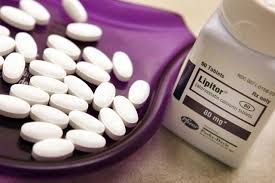Cholesterol-lowering drugs have serious side effects that include brain damage
02/20/2019 / By Lance D Johnson

One out of every five Americans has been convinced to take a statin drug in order to lower their blood cholesterol levels and supposedly prevent heart disease. The Centers for Disease Control (CDC) admit that statin drug use is on the rise; Atorvastatin (Lipitor) is the best-selling prescription drug in the world. The problem with statin drugs is they cause memory loss, learning difficulties, muscle wasting, rapid aging, irritability, and mental health issues. Peer reviewed research also indicates that almost half of all women who religiously take statins ultimately develop diabetes.
These are topics that doctors don’t necessarily discuss with patients in full detail. These are problems that the pharmaceutical industry is not being held accountable for. Statin drugs are contributing to the rise in memory problems, dementia, and Alzheimer’s. Statin drugs are inhibiting the body’s ability to regulate blood sugar levels.
Statins destroy the mitochondria of cells, causing rapid aging and brain damage
While statins are presented as a daily cure-all, a study published in JAMA Internal Medicine shows otherwise. Researchers followed eleven million patients from 1987 to 2013. Those who took statins and other cholesterol-lowering drugs were four times more likely to report memory loss after starting the drug. Even the FDA warned that statins can cause confusion and memory loss. According to scientists at Tulane University in New Orleans, statins “deactivate” the stem cells responsible for cellular repair throughout the body, causing rapid brain damage.
This is because statins harm mitochondrial function. Muscle wasting is observed after statin use through the inhibition of the cytochrome P450 (CYP)3A4 system. At high doses, statins cause a life-threatening muscle damage called rhabdomyolysis, which includes kidney and liver failure. Statin-induced mitochondrial dysfunction is also the underlying problem that causes cognitive loss, neuropathy, pancreatic and hepatic dysfunction, and sexual dysfunction. These are the most commonly reported side effects of statin drugs.
Statins are a class of drugs called HMG-CoA reductase inhibitors. Because they limit the body’s ability to produce its own coenzyme-10 (CoQ10), statins can actually contribute to the aging process and cause heart disease. CoQ10 is produced naturally by the body and stored within the mitochondria of cells. It is responsible for generating adenosine triphosphate (ATP), for energy transfer between cells and also protects against oxidative damage.
Cholesterol isn’t the enemy or the sole culprit of heart disease
Statins keep blood cholesterol levels down by blocking the substance in your liver that the body uses to make low-density lipoprotein (LDL) cholesterol. When LDL cholesterol levels exceed 100 mg/dL, doctors now recommend a statin prescription. Doctors may also recommend a statin after a heart attack, if a patient has a high risk of having another heart attack or stroke within the next 10 years, or if they are 40 to 75 years old and have diabetes.
Another problem with statin drugs is that they only focus on one issue in patients: cholesterol levels. Cholesterol isn’t even the main culprit behind heart disease. For one, cholesterol is naturally produced by the liver to help build tissues. Cholesterol is essential in the production of sex hormones and to assist in bile production within the liver. The individual’s diet must reinforce healthy cholesterol formation (high density lipoprotein) and limit bad cholesterol (low density lipoprotein).
There are more important factors that cause heart disease that statins do not address. Psychological stress, work environment stress, and relationship stress all create tension throughout the body, causing high blood pressure and circulatory system distress. Trans fats and greasy foods also put stress on the circulatory system; yet most statin drug users eat these foods on a regular basis. In a way, statins provide a false sense of security, making patients disregard the real issues that cause heart disease. The inflammation that is at the root of the issue is exacerbated by a sugary, trans fat diet that doesn’t include enough nutrients to fight off free radicals that are doing damage to the circulatory system.
For more on the science behind statins, check out Statins.News.
Sources include:
Tagged Under: ATP energy, Big Pharma, brain damage, brain health, cholesterol, confusion, CoQ10, dangerous drugs, disease causes, good cholesterol, heart attack, heart disease, heart health, liver health, medical myths, memory loss, mind body science, mitochondria, statin drugs, statin scam, statins
RECENT NEWS & ARTICLES
COPYRIGHT © 2017 BRAIN NEWS


















